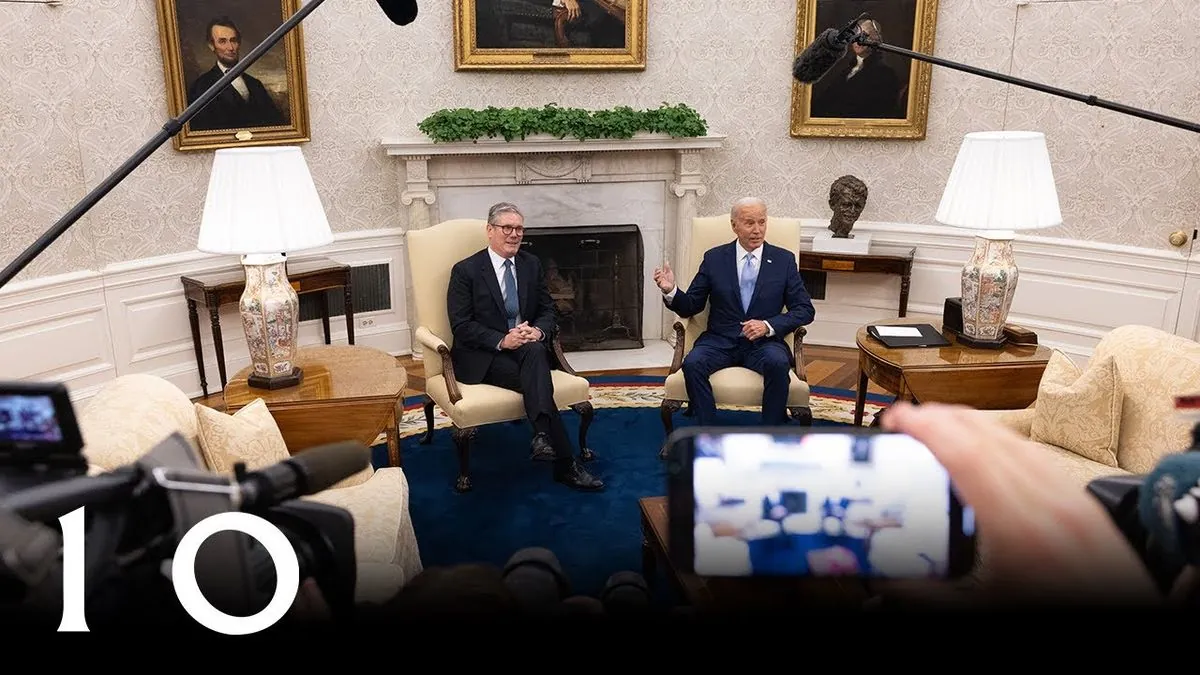UK-US Relations in Flux: Starmer's Security Adviser Dilemma
Keir Starmer's cancellation of a key security appointment raises questions about UK-US relations. As Europe prepares for potential changes in US leadership, NATO allies face pressure to increase defense spending.

The relationship between the United Kingdom and the United States, often described as "special," is currently experiencing a period of uncertainty. This flux is exemplified by Keir Starmer's recent decision to cancel the appointment of General Gwyn Jenkins as national security adviser, a position originally offered by former Prime Minister Rishi Sunak in April 2024.
This move has raised eyebrows in military and diplomatic circles, given Jenkins's extensive experience. The general previously served as vice-chief of the Defence Staff until June 2024 and held the role of deputy national security adviser from 2014 to 2017.

While Starmer has not provided a specific reason for this decision, experts speculate that it may be linked to the upcoming US presidential election in November 2024. The timing of the UK's recent election, just months before the US vote, has created a unique situation where British leadership is uncertain about their future White House counterpart.
"There will be an open and transparent process [to find a new security adviser]. And, no, I'm not going to publicly discuss individual appointments."
This cautious approach reflects a broader trend among European governments, often referred to as "Trump-proofing." These efforts aim to ensure the continuity of NATO, support for Ukraine, and individual national security, regardless of potential changes in US leadership.
The situation highlights the delicate balance of trans-Atlantic relations. While the UK-US partnership has historically been strong, it has also been influenced by the personal dynamics between leaders. For instance, the relationship between Tony Blair and George W. Bush demonstrated that connections can transcend ideological differences.
As Europe grapples with these uncertainties, there is a growing emphasis on strengthening European defense capabilities. NATO allies are being urged to meet or exceed the target of investing 2% of their GDP in defense. By 2024, 23 NATO members are expected to reach this threshold, a significant increase from just three in 2014.
Ed Arnold, a research fellow at the Royal United Services Institute (RUSI), notes that European countries must prove their commitment to addressing US concerns, particularly regarding China and the Pacific region. This shift in focus is crucial as the US increasingly looks towards the Indo-Pacific.

The appointment of a well-qualified national security adviser remains a pressing issue for the UK. As Hamish de Bretton-Gordon, a retired British tank unit commander, points out, this role is crucial for planning the nation's defense and security, especially given the potential for escalation in conflicts like Ukraine.
As the geopolitical landscape continues to evolve, the UK and its European allies must navigate these challenges while maintaining strong trans-Atlantic ties. The outcome of the US election in November 2024 will undoubtedly play a significant role in shaping these relationships, but European nations are increasingly recognizing the need to bolster their own defense capabilities, regardless of who occupies the White House.


































